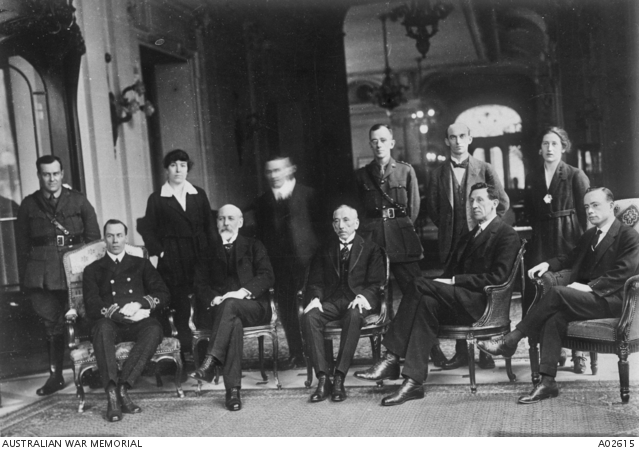Treaty of Versailles
28 June 1919
Australia signs its first international treaty and is recognised as an independent nation.
The Treaty of Versailles officially ended the First World War. It was the first political treaty signed by Australia and the first negotiated with the participation of Australian delegates. The treaty also recognised independent, self-governing Australia as a member of the new League of Nations (predecessor of the United Nations).
Prime Minister William Morris (Billy) Hughes fought to establish Australia’s security and independence in the treaty negotiations and ensure the sacrifice and contribution of the Australian Imperial Force to the victory would not be forgotten. When United States President Woodrow Wilson questioned Hughes’ authority to participate in world affairs because he was 'speaking for only 5 million people', Hughes retorted; 'I speak for 60,000 dead.'
Australia’s role as a signatory to the treaty and founding member of the League of Nations marked the first step in international recognition of the full national status of Australia. Before this the Australian Government was frequently not consulted by Britain on treaties, which it signed on behalf of its Empire.
Australians at the Peace Conference in Paris, 1919

Australian War Memorial
Description
A group portrait of the 11 people in the Australian delegation to the Peace Conference in Paris at the end of the First World War, 1919. Then Prime Minister William Morris (Billy) Hughes is seated in the middle of the front row.